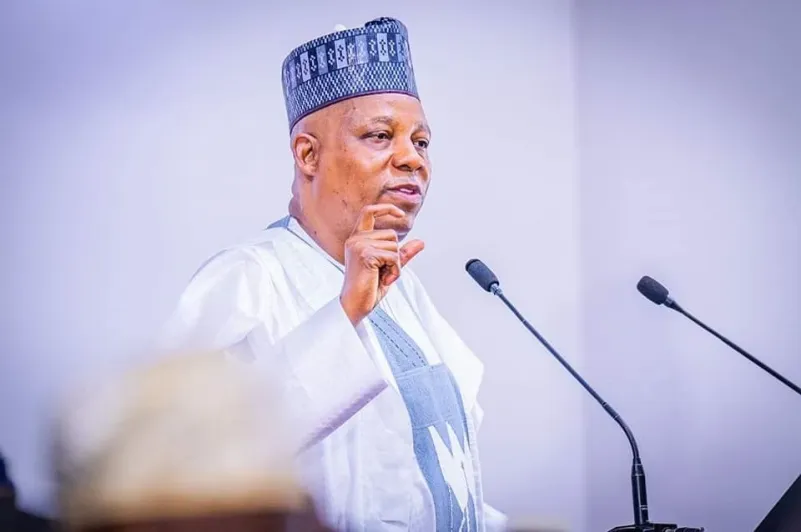Nigeria’s Vice President, Senator Kashim Shettima, delivered a compelling call to action at the African Economy of Scale Plenary during the World Economic Forum (WEF) in Davos, Switzerland. Urging African leaders to prioritise technology and digital skills, he emphasised the need to elevate the continent’s Gross Domestic Product (GDP) from its current three percent of the global GDP.
Senator Shettima acknowledged the impactful role of African youths in driving technological advancements. He commended the creation of tech-driven private-sector organisations, some achieving unicorn status with over $1 billion in capitalization. Notable examples include the Pan-African Payments and Settlement System (PAPSS), showcasing the technological prowess of African youths.
Read also: The role of technology in President Tinubu’s 2024 budget
In his address, Vice President Shettima outlined how the proposed economic transformation would significantly improve tech skills and foster the growth of startups. By embracing an Africa Economy of Scale, the collaborative effort would lead to the creation of technology hubs, incubators, and innovation centres. These initiatives would provide a conducive environment for the development of digital skills, nurturing a new generation of entrepreneurs capable of driving technological advancements.
Senator Shettima emphasised the importance of investing in education and training programmes tailored to meet the demands of the digital age. He envisioned a scenario where African youths would be at the forefront of technological innovation, contributing not only to the continent’s economic growth but also making a mark on the global tech landscape.
Current Economic Landscape
Senator Shettima highlighted the stark reality that Africa’s combined GDP stands at a mere $3.1 trillion, representing less than 3% of the world’s GDP. Additionally, he expressed concern over Africa’s trade, which stagnates at 3% of global trade. The Vice President underscored the urgency to reverse these indices and emphasised the need to transition from primarily basic economies to advanced manufacturing.
Acknowledging the continent’s economic structure, Senator Shettima noted that African nations predominantly rely on exporting raw materials, minerals, and food crops. He stressed the imperative to add value to primary products, move towards secondary and tertiary manufacturing, and reduce dependency on the global economy.
The Vice President emphasised the concept of economies of scale as a crucial strategy for African nations. He highlighted the potential benefits of coming together to form a more formidable unit, providing a bigger voice and stronger negotiating abilities on the global stage. Shettima emphasised that scalability is vital, especially in an era where artificial intelligence and machine learning redefine human interactions.
How telecommunication standard organisations Impact communications
Infrastructure Deficit and Opportunities
Senator Shettima recognised the infrastructure deficit in Africa, estimating it at trillions of dollars. He outlined the need for significant investments in housing, education, transportation, technology, and energy sectors. Despite these challenges, he viewed them as opportunities for engagement, productivity, and profitability.
The Vice President applauded the African Continental Free Trade Agreement (AfCFTA) as a step towards boosting the continent’s GDP by $450 billion in the next decade. He stressed the urgency of actualizing an African economy of scale, considering Africa the last frontier for development.
In conclusion, Vice President Shettima urged African leaders to embrace the concept of the Africa Economy of Scale, fostering collaboration and deep engagement to propel the continent towards a more prosperous future. He emphasised the importance of preparing a better Africa for future generations, particularly in the Information Age, where small dreams no longer suffice to impact the global stage.
















